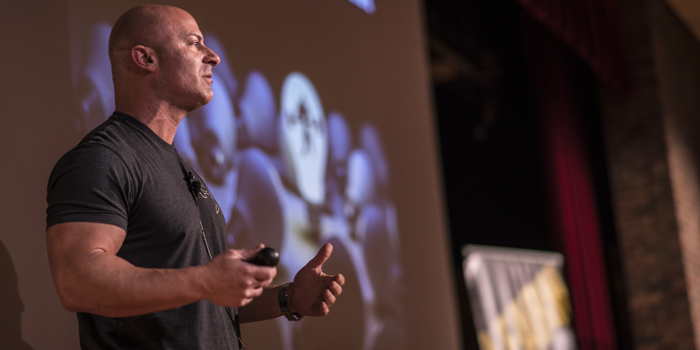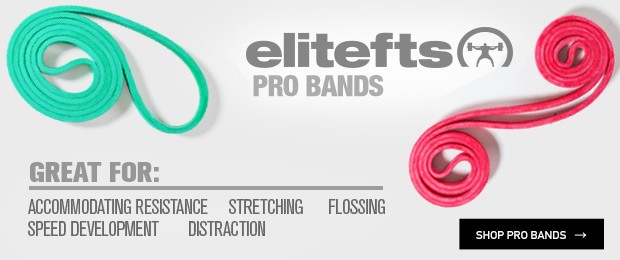
In the previous segment of Joe DeFranco's presentation from the Strong(er) Business: elitefts Fitness Professional Summit, DeFranco introduced something known as the "Know, Like, Trust" factor. This theory, as it applies to gym-owners and trainers, states that in order to be successful in business, you must first get potential customers to know you, then like you, and finally trust you. Having covered the "know" step of this process, in this video DeFranco now moves to the "like" step of the process.
If you've accomplished getting people to know who you are, it's time to turn your attention to getting them to like you. In DeFranco's opinion, the best way to do this is isn't to prop yourself up as the greatest business owner or trainer ever. In fact, it's quite the opposite: you need to humanize your business. Be honest. Be vulnerable. Be transparent about your imperfections. Every business might look perfect from their Instagram page, but the average business fails in the first year. If it seems to you like something doesn't quite add up here, you're right.
To explain how likability works in the fitness industry, DeFranco points out that most business owners try to be perfect, failing to realize that perfection is not a likable characteristic. This is the reason so many people dislike Tom Brady — he seems perfect. Rich, good-looking, hot wife, and a Super Bowl ring for every finger. Everyone hates the person who looks perfect because that person isn't relatable. If you try to mimic this with your business, you're probably going to fail. People want to be able to relate to you. If you're open and honest about who you are and what you've been through, far more people will be able to relate to you and you'll have a better connection with your audience.
To demonstrate this point, DeFranco shares several stories of times that he allowed himself to be vulnerable and it led to a greater connection with his audience. For example, DeFranco was once criticized via email for charging for his premium online services, with a former fan describing him as just another trainer selling out for cash. In response, DeFranco made a video reading the email publicly, and he explained that all of his free content was still out there and that the new service was a different, premium service for high-level trainers. Nothing changed about his free information; he was simply offering a different service in response to trainer demand.
That could've been enough, but what DeFranco chose to also share was the story of his financial difficulties. He was open about how close he was to going out of business due to the difficulty of bringing in money despite the fame of the gym. Within 24 hours of posting the video, DeFranco was contacted by numerous coaches, trainers, and gym owners who shared their similar stories and thanked him for being willing to share his struggles. Very quickly DeFranco developed a bond with these coaches and developed many consulting relationships because of it.
DeFranco goes on to share two additional examples: the time he had his doctor read the results of his blood work on the podcast (including full disclosure about depression and panic attack issues), and his ongoing honesty about struggling to balance family and work. The lesson here, through each of these examples, is to be honest. Don't pretend to be a business guru. Don't pretend to be perfect. Be who you are and you'll have a much better connection with your audience.
By the minute:
- (0:23) Humanize your business
- (2:48) How DeFranco has been vulnerable with his audience
- (7:00) The response to DeFranco's financial difficulties
- (8:31) DeFranco's health issues
- (12:30) Work-life balance as a gym owner









